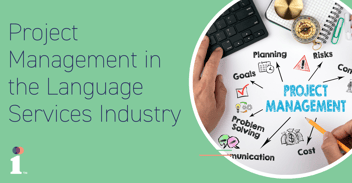
There is a difference between doing several tasks at the same time and being an effective project manager. Interprenet project managers coordinate multiple projects, which requires much of them. They liaise with clients, vendors, and technicians all over the world. Care and support are required for world-class interpreters, who deliver high-level remote simultaneous interpretation for a global market. How does a project manager execute multiple projects at a time without collapsing? How do they manage numerous planning meetings and interactions with professionals across the globe? Effective project management requires mastery of several best practices. Here are seven of them.

Pay Attention to Detail
There are so many things that can go wrong when managing numerous linguistic teams across the globe. There is very little room for error. Successful project managers cross-check key information from all sources and at every stage of the project. It does not hurt to ask twice concerning important details of an event. For example: Is the event’s start time at AM or PM hours? Is interpretation required one-way or two-way? Will speakers present in languages other than English? Have there been changes in the schedule? Thorough project managers double-check key details to avoid mishaps.
Never Assume
If there are discrepancies or the information is incomplete, never make assumptions about projects. If the schedule or agenda is unclear, never make assumptions about details. Confirm the exact location of a broadcasted event, even if you have the time zone. Some countries follow daylight savings time. Others do not. Cross-checking location with time zone will save you a headache.
Always Anticipate
Think of all possible scenarios where things could go wrong. Have a plan for each one. If materials must be sent to interpreters during your night hours or on a day off, instruct someone to send those files to the interpreters. Do the interpreters know what to do in case of an electrical outage? Does the project Technical Leader have the interpreter’s contact information in case there is an unexpected change of schedule? Always anticipate potential threats to the flawless execution of your projects.
Prioritize (Red-Yellow-Green Rule)
Your emails and tasks are bound to stack up. Classify your to-do list in order of priority. First, focus on the “Red tasks”—tasks that require immediate action. Then, move to the “Yellow tasks”—those tasks that require action but are not time sensitive. “Yellow tasks” may require thought and consultation. Finally, continue with the “Green tasks”—which are least urgent tasks.
Communicate Clearly and Concisely
Wordiness leads to confusion.
Important questions should be included at the beginning of emails: How many breakout rooms will there be? Will there be non-English presenters?
Make clear calls to action for your readers: Please confirm, advise, clarify, etc.
All information should be included in a single email. Avoid long descriptive (unnecessary) sentences without a clear request to respond. And stay on the thread to make sure important information does not get lost.
Start and Finish Swiftly
When you are handed-over a project, do not procrastinate. If you do, tasks will pile up quickly. During pre-event coordination your priority is to: secure the best resources; get the paperwork done; collect, organize, send prep materials; and move to the next project. When an event is over, close the project within 48 hours. This will prevent you from receiving unnecessary emails or notifications.
Breakdowns Can Wait, Emergencies Cannot
If something goes wrong with a project and you need to make a quick decision, breathe, breathe some more, and then take action. A lot of people depend on your clear head and focus. Once the event is over, you can sit down with a cup of tea and have a cry.
Do “Future You” a Favor
If you put these suggestions into practice, you will maximize multitasking and become a more effective project manager. Try these techniques! “Future You” will be extremely grateful for implementing these strategies.
Constanza Martinez is a Senior Project Manager in the Global Services Division at Interprenet.


